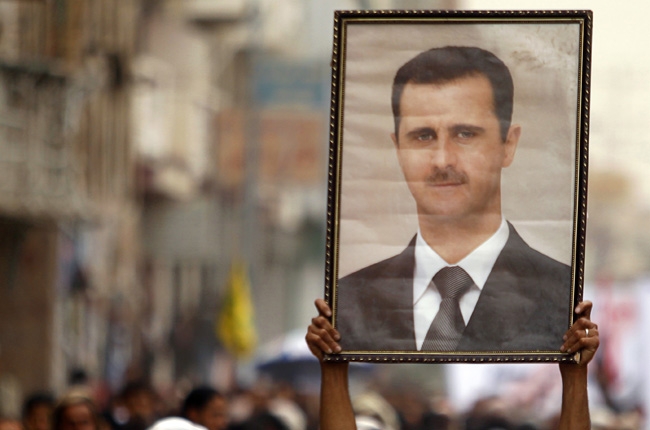France provoked a diplomatic uproar by opening a window to Assad’s regime in Syria and expressing the possibility of cooperating with the Syrian Armed Forces to fight ISIS. German statements revealed that there are features of a coordinated European position in this regard.
The uproar began after the French Foreign Minister Laurent Fabius referred to the possibility of utilising the army, which is loyal to Assad, to fight ISIS in solidarity with the German position, which is similar to this. Despite a “retreat” in a later statement in which Fabius said that “cooperation with Syrian government forces in fighting ISIS can happen only within the framework of serious political change in Syria”, French diplomatic sources confirmed to Asharq Al-Awsat that the French minister’s statement comes in the context of a French “gradual progress,” which may end with the announcement of cooperation with the Syrian regime to combat the extremist organisation.
Fabius’ statement sparked controversy especially after the Syrian Foreign Minister Walid Muallem welcomed it. The official Syrian Arab News Agency SANA hastened to say that “the terrorist attacks that affected the French capital Paris pushed Fabius to acknowledge the importance of the Syrian Arab Army’s participation in the fight on the ground against the terrorist organisation ISIS”.
However, the Vice President of the National Coalition of Syrian Revolution and Opposition Forces, Hisham Marwah, told Asharq Al-Awsat that France remains committed to the necessity of Assad’s departure before the beginning of the transitional period, pointing out that Fabius’ comment “has been altered considering the fact that it was in response to a question posed by the Russians about the advantage of their dependence on forces loyal to Assad to fight ISIS”.
Fabius explained that “the Russian president requested the formation of a map of the non-terrorist forces that fight ISIS … and vowed not to bomb them, and this is very important” confirming that Paris will present this map.
A spokesperson for the German government yesterday said in Berlin that “there is a consensus amongst all partners that the structure of the Syrian state must be preserved”. He added that “if the regime agrees with the opposition on the future of the state, then they will both be able to work against what is called the reorganisation of the country” indicating that this does not have any connection with the issue of Bashar Al-Assad’s future, confirming that Assad “will not be a part of a long term solution to the problem”.
This article was edited by The Syrian Observer. Responsibility for the information and views set out in this article lies entirely with the author.


